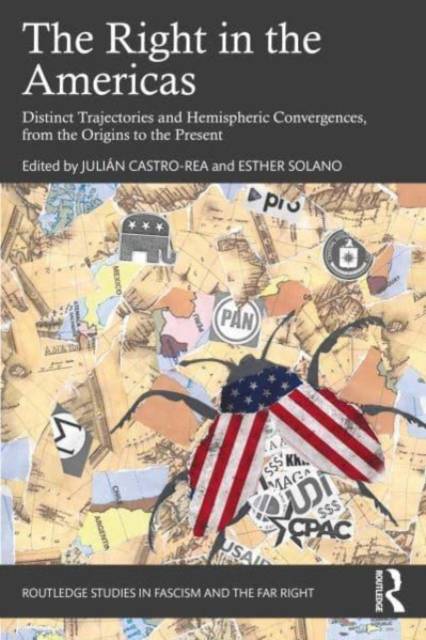
- Retrait gratuit dans votre magasin Club
- 7.000.000 titres dans notre catalogue
- Payer en toute sécurité
- Toujours un magasin près de chez vous
- Retrait gratuit dans votre magasin Club
- 7.000.000 titres dans notre catalogue
- Payer en toute sécurité
- Toujours un magasin près de chez vous
The Right in the Americas
Distinct Trajectories and Hemispheric Convergences, from the Origins to the Present
Description
The Right in the Americas discusses the origins, development, and current state of conservative and right-wing movements in ten countries in the Americas.
The growth of the right is one of the most important issues of the moment in global politics. Within the context of democracy erosion, rejection of traditional politics, and economic uncertainty, right and extreme-right actors are capable of offering misguided answers and hope to a significant part of a country's population, who will trust their promises and bring them to power with their vote. This dynamic has repeated itself in an astonishingly consistent pattern across the Americas. This book analyses eight Latin American countries-Argentina, Brazil, Chile, Colombia, Honduras, Mexico, Uruguay, and Venezuela-along with Canada and the United States, two G7 countries. It demonstrates that conservatism is in fact a hemispheric phenomenon, promoted and invigorated by the regional hegemon-the United States of America-both as government and as civil society. Beyond this regional scope, the peculiarities of each case study are explored in detail, providing solid historical background, while at the same time uncovering their commonalities and cross-pollination.
This study will be of great interest to scholars of conservatism, right-wing politics, comparative politics, and North American and Latin American politics.
Spécifications
Parties prenantes
- Editeur:
Contenu
- Nombre de pages :
- 250
- Langue:
- Anglais
- Collection :
Caractéristiques
- EAN:
- 9781032386959
- Date de parution :
- 14-07-23
- Format:
- Livre broché
- Format numérique:
- Trade paperback (VS)
- Dimensions :
- 156 mm x 234 mm
- Poids :
- 385 g






